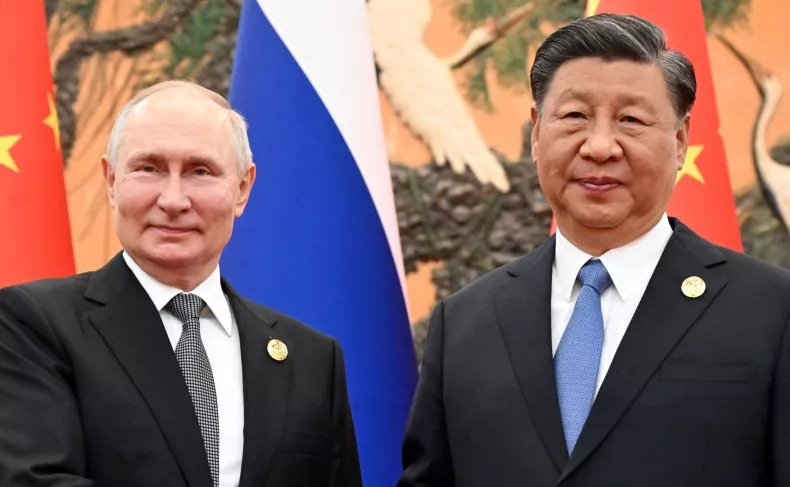At the close of 2023, Chinese President Xi Jinping sent a message of support for Vladimir Putin and the Russian people.
The two presidents have always had a friendly relationship, which Xi claimed on Sunday has grown “stronger” with his “good friend” over the past 12 months as Western countries have become more united against Putin and Russia’s war in Ukraine, which started with the invasion on February 24, 2022, nearly two years ago.
According to a recent Gallup Poll, 71 percent of Russians support Xi, indicating that they view him favorably. However, as Putin’s war rages on with no sign of an end in sight, concerns about how long it can last and if it can be sustained politically persist throughout his country.
“China-Russia relations have maintained healthy and stable development and moved steadily in the right direction in the face of changes unseen in a century and a turbulent regional and international situation,” Xi stated on Sunday, according to The Moscow Times, an independent online newspaper published in both Russian and English.
Xi said further: “Under our joint leadership, political mutual trust between the two sides has further deepened, strategic coordination has drawn closer, and mutually beneficial cooperation has continued to achieve new results.”
In 2023, Moscow lost more troops than anticipated (360,010, according to the most recent information from the Ukrainian military). According to a survey released this past Friday by the polling organization Russian Field, almost half of Russians desire a war settlement in 2024. Putin, 71, is running for president a fifth time this year.
St. Petersburg’s sudden cancellation of a New Year’s Eve concert in response to Ukrainian missile attacks on the Russian city of Belgorod near the Ukrainian border, which left at least 24 people dead—including three children—and 110 injured, further compounded Russia’s troubles. Moscow placed the responsibility on Ukraine, which might have been retaliating for Russian drone and missile strikes against the roughly 40-mile-distance city of Kharkiv the previous day.
There will be a presidential election on March 17. Rumors have claimed that Putin is afflicted with dementia, Parkinson’s illness, and cancer. Reports that the president had gone into cardiac arrest had to be denied by the Kremlin in October.
In the midst of worldwide unrest, Putin and Xi are managing to maintain positive ties despite the nuclear threats posed by the war in Russia and Ukraine and the Israeli-Hamas confrontation in Gaza.
The U.S. presidential race, which seems destined for a rematch between President Joe Biden and Donald Trump, might potentially have a major impact on the current geopolitical environment and the Xi-Putin partnership. Only a few weeks before the first primary, the latter is significantly ahead of his Republican competitors in the polls, and Biden has no real competition for the Democratic candidacy.
“If Donald Trump were to be reelected, it would have global implications,” Julie Norman, an American politics professor at University College London, previously stated to Newsweek. “In the U.S., we could see challenges to the election or electoral system—especially if Trump again wins the Electoral College but not the popular vote—and we’d likely see polarization exacerbated to new extremes.”
She went on to say: “There are also concerns that a second Trump term would undermine democratic norms and institutions much more than the first term, which would have long-term repercussions for the U.S. domestically, America’s image abroad and the future of democracy around the globe.”

